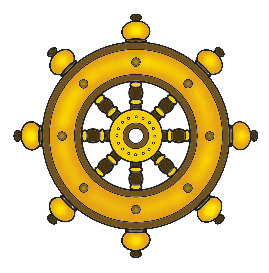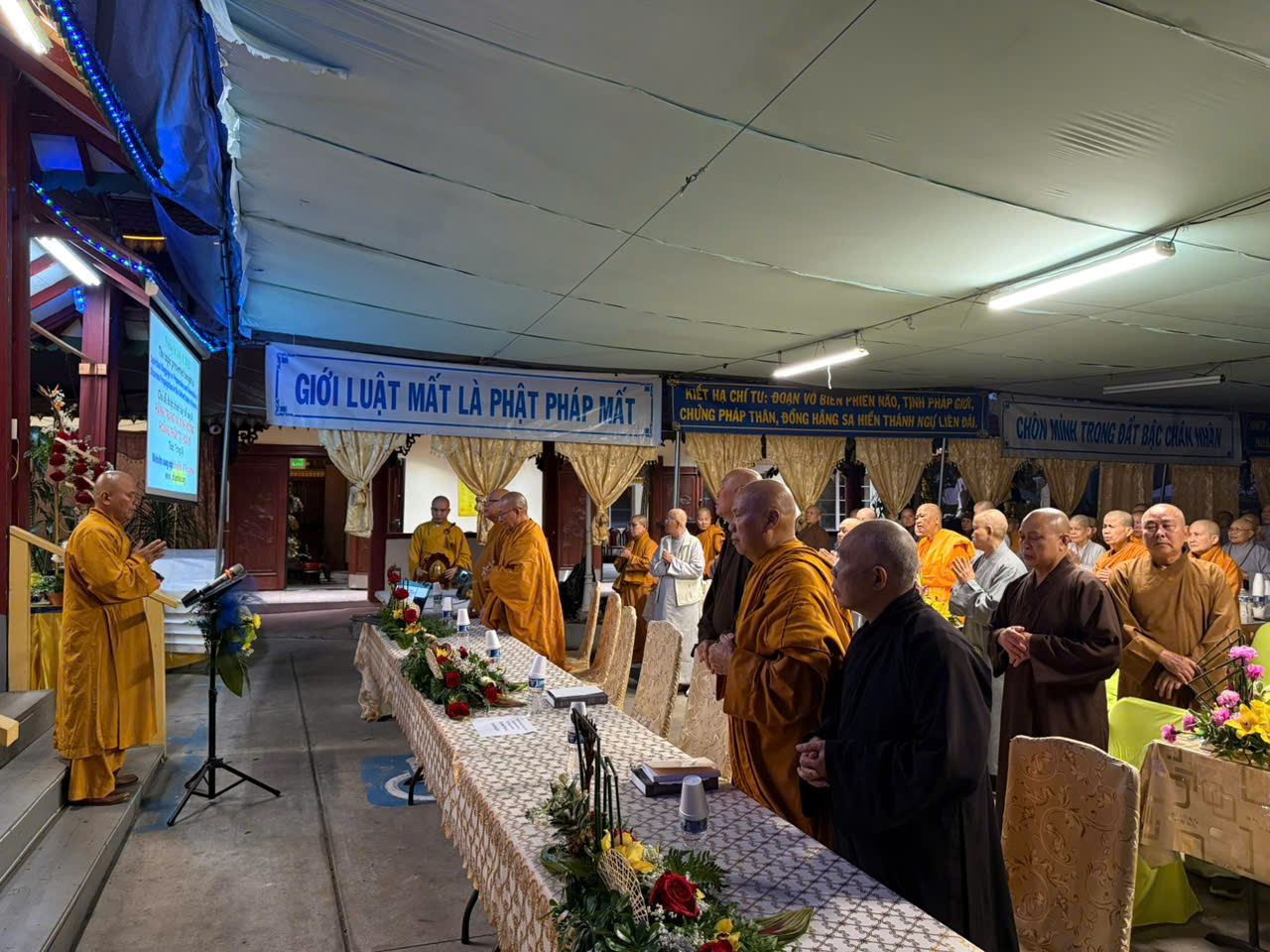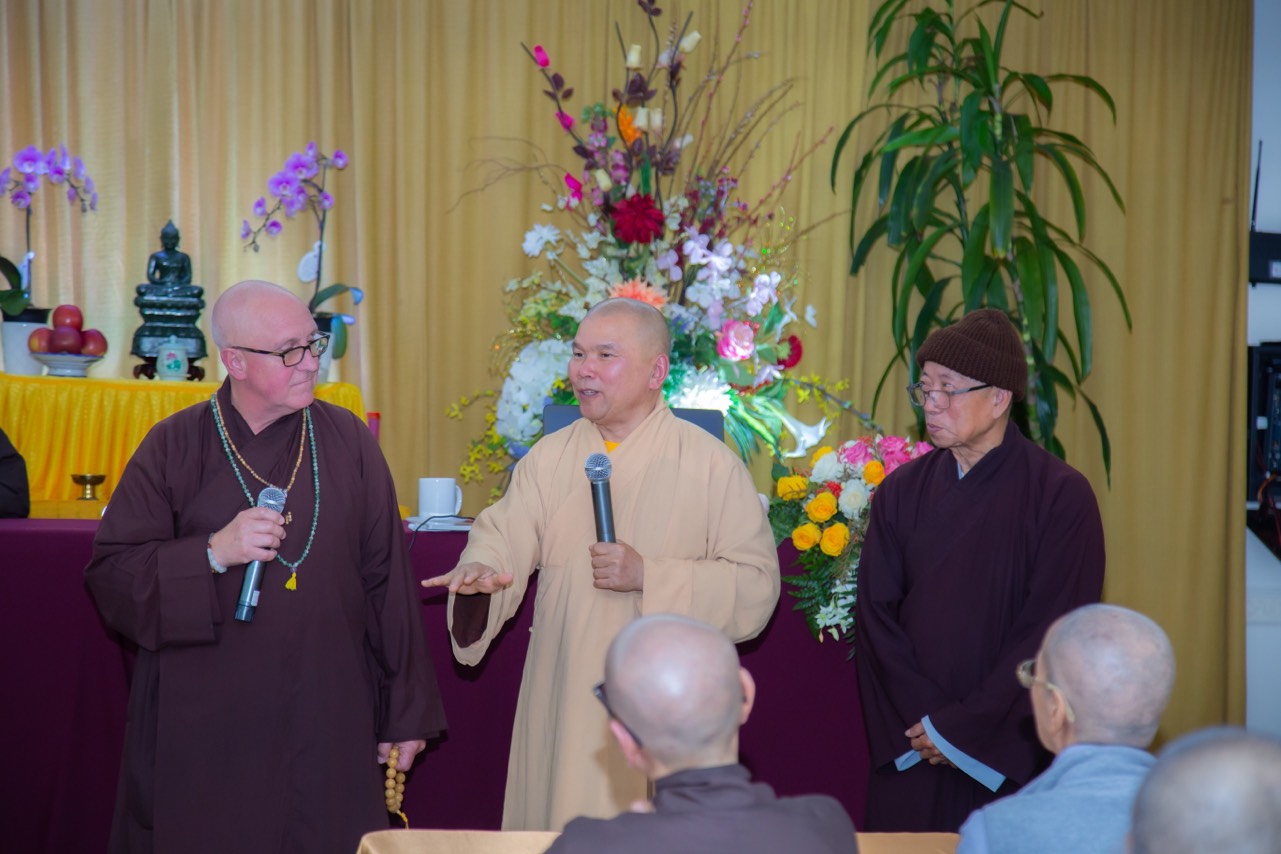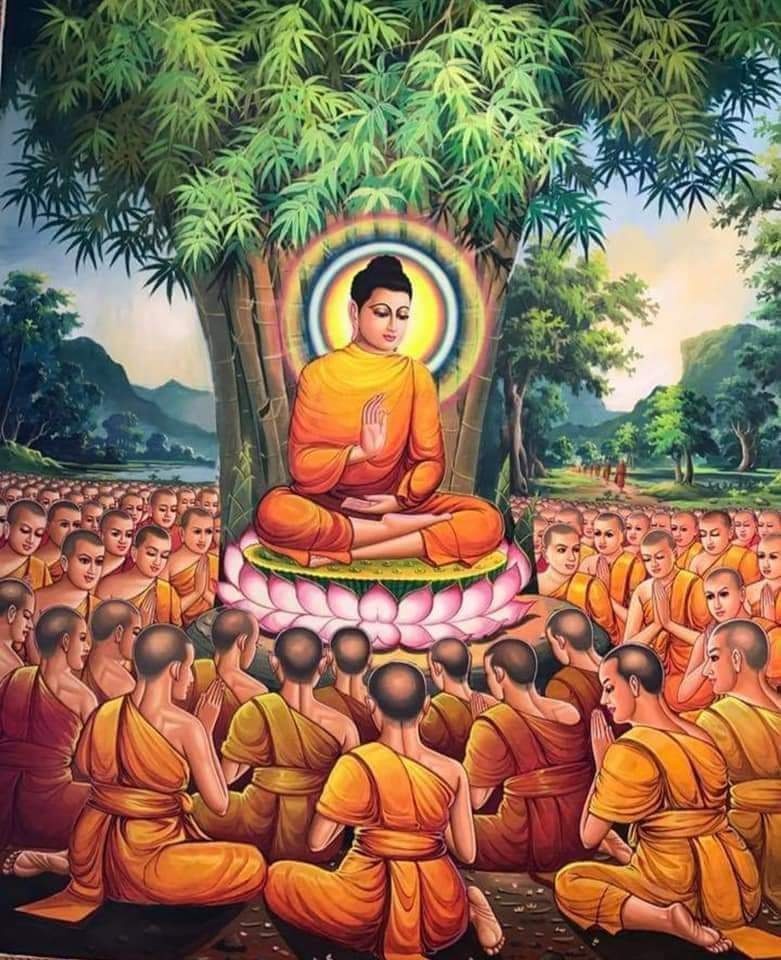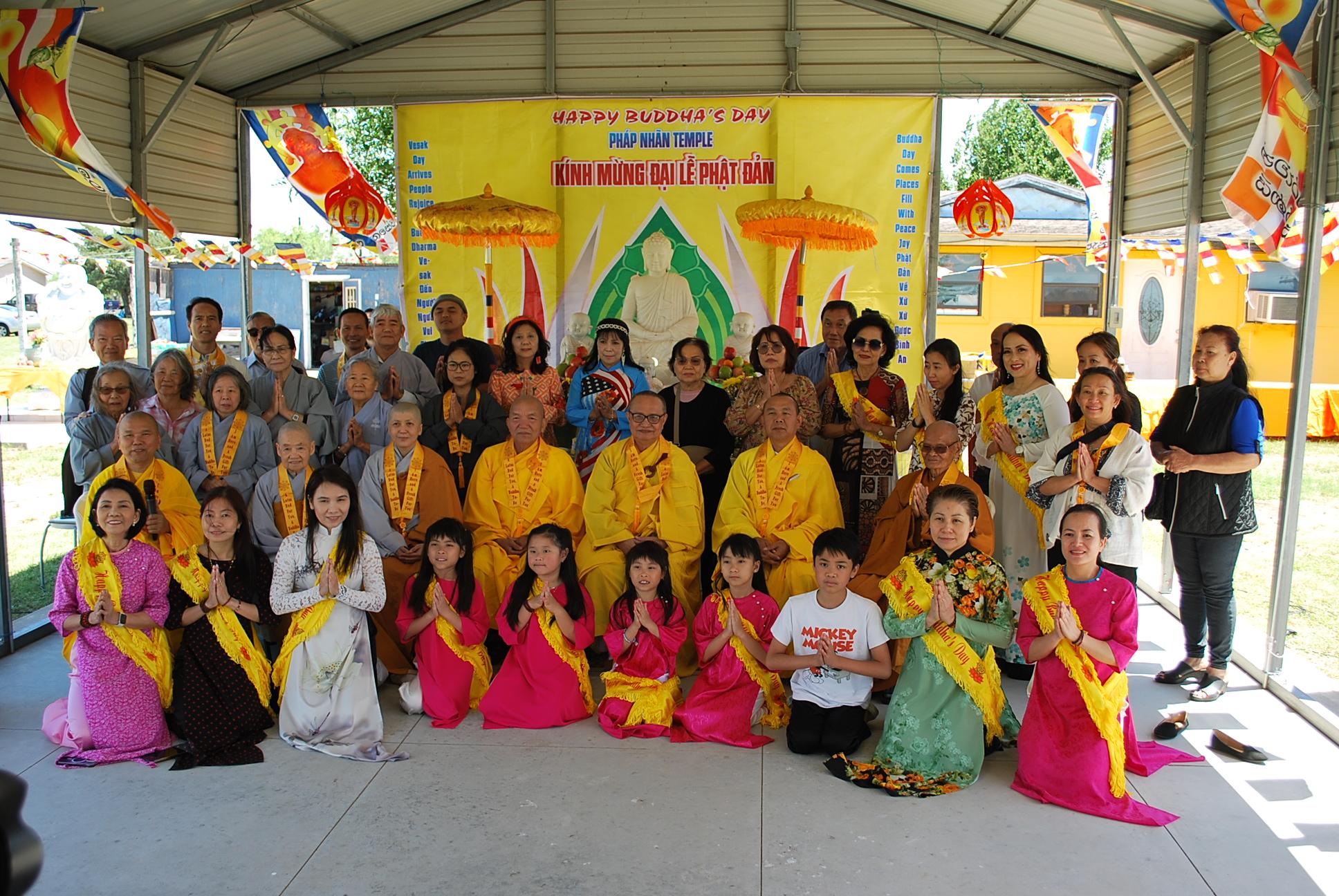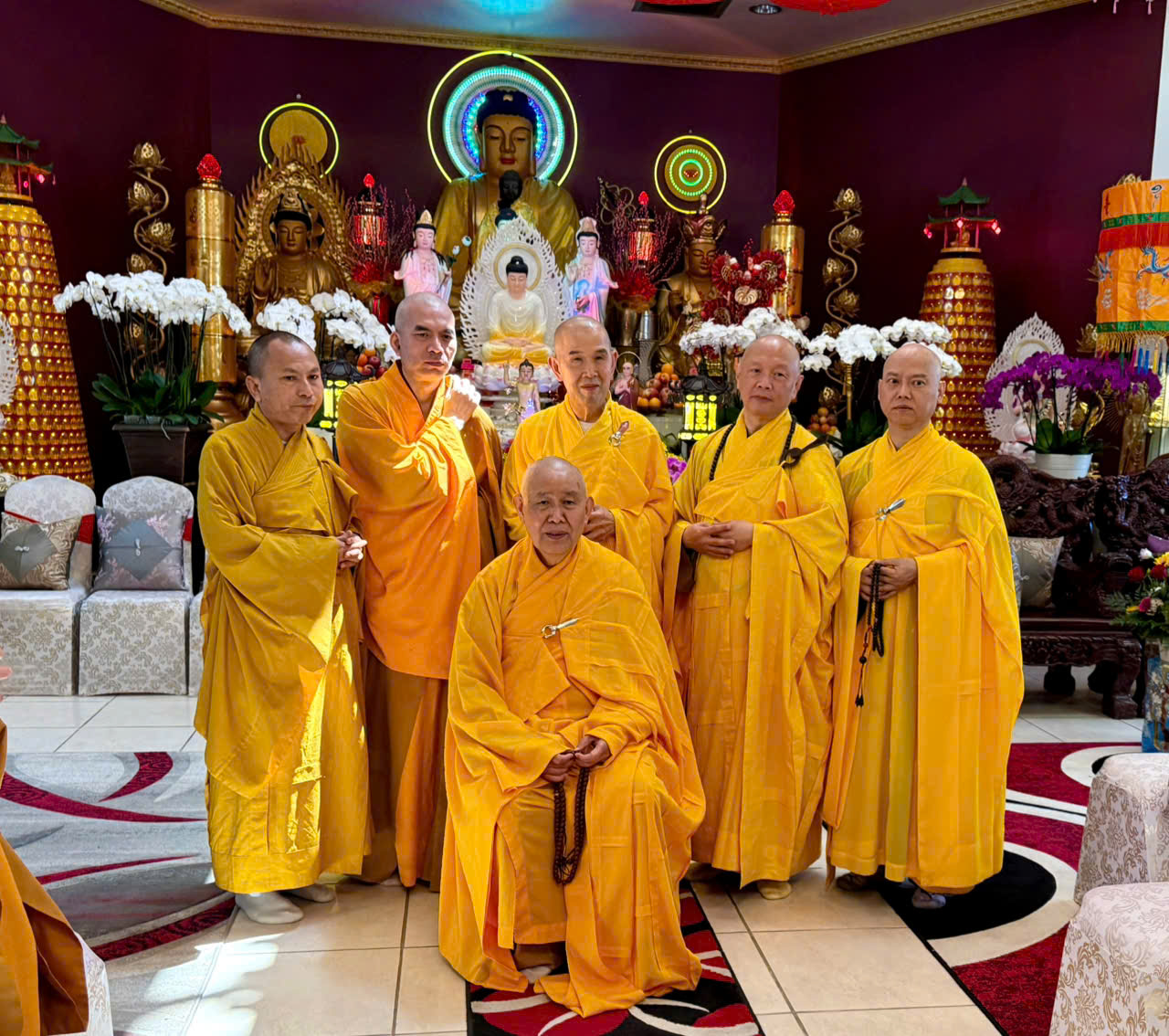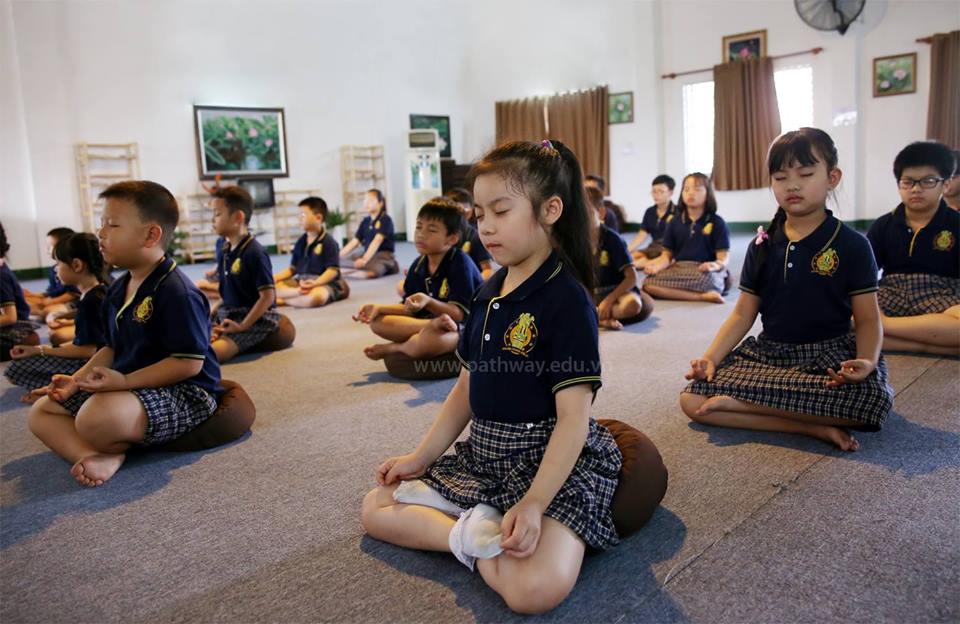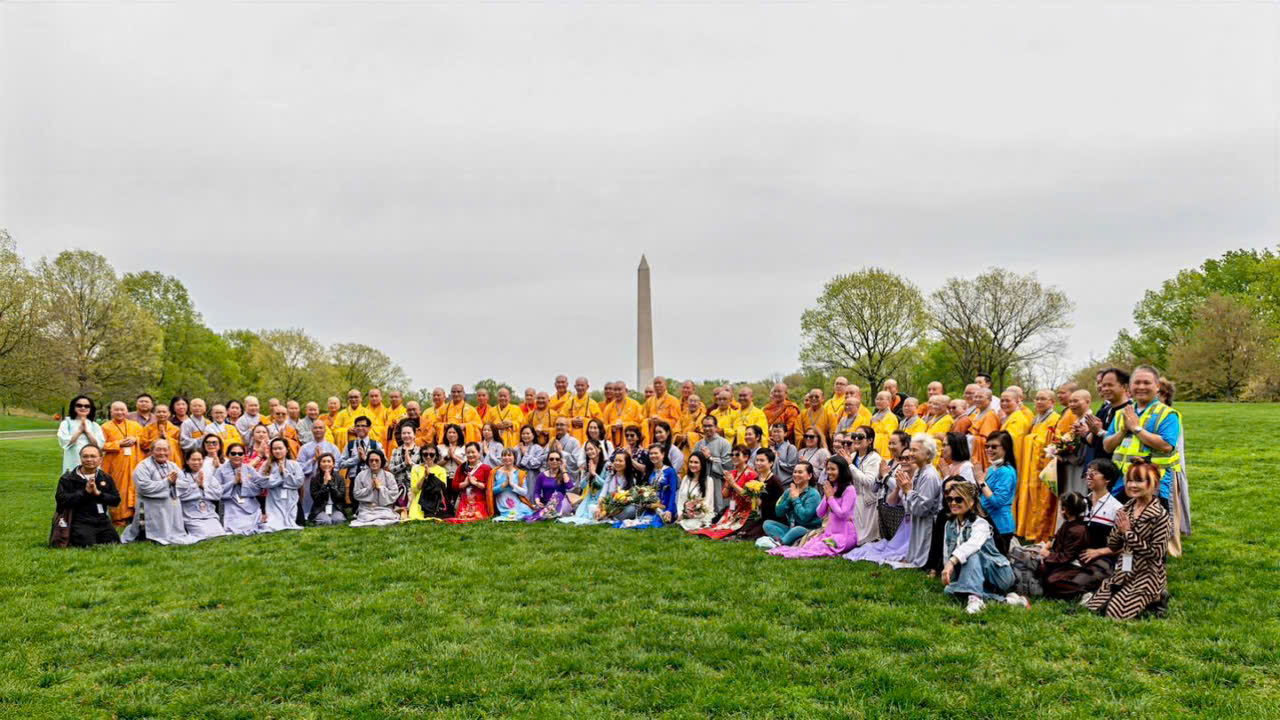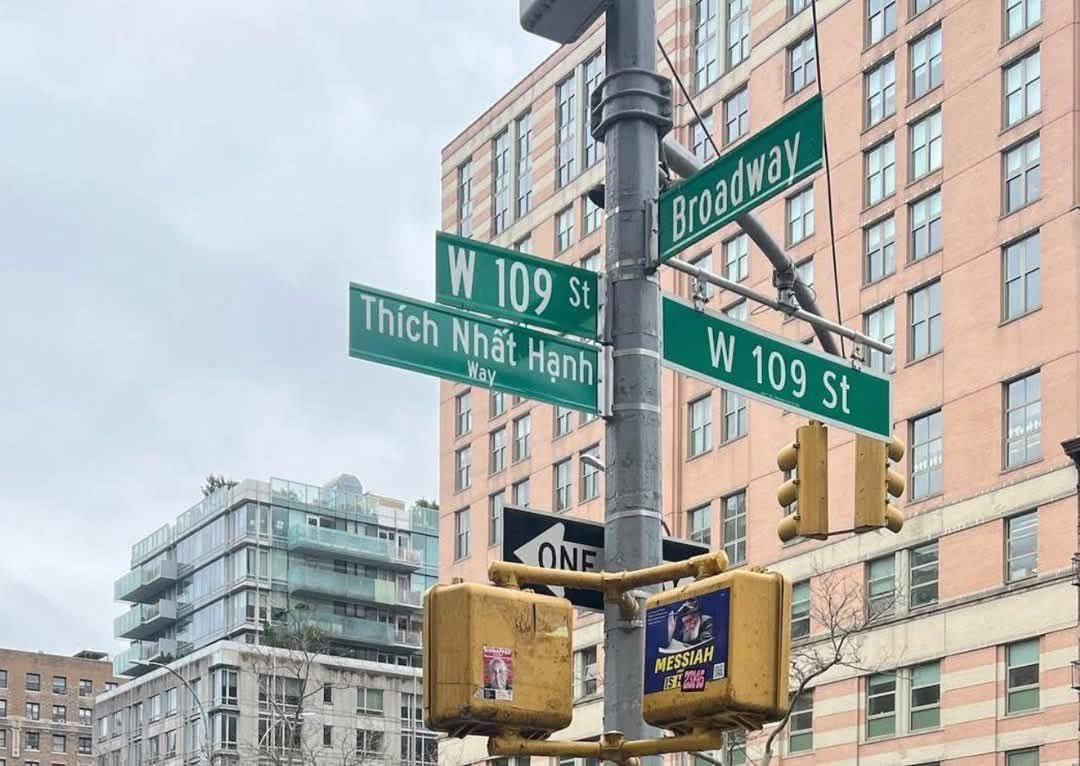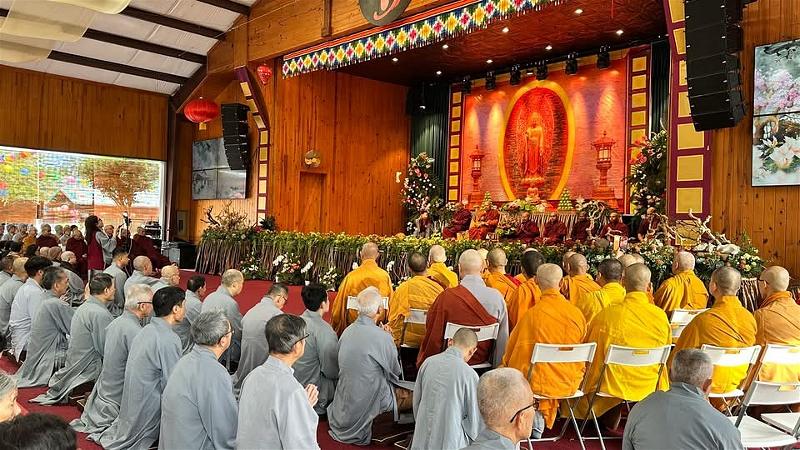Maha Thero Thích Phổ Tuệ Translated by Ven. Thích Trừng Sỹ
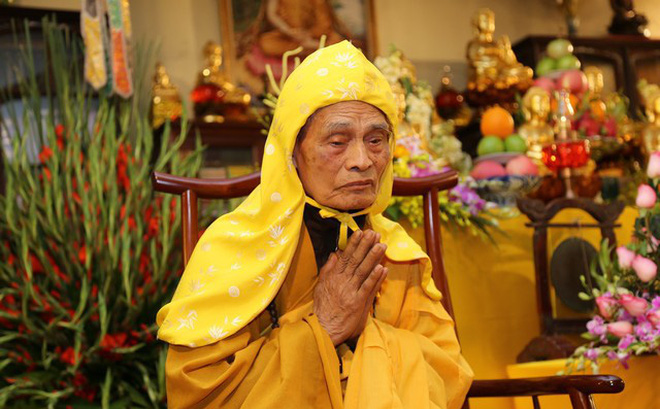
BIOGRAPHY
BUDDHIST SANGHA OF VIETNAM
BIOGRAPHY OF HIS HOLINESS – THE SUPREME PATRIARCH OF VIETNAM BUDDHIST SANGHA – THE MOST VENERABLE ELDER THÍCH PHỔ TUỆ
(1917 – 2021)
1. FAMILY BACKGROUND
His holiness – the Most Venerable Elder Thích Phổ Tuệ, known as Bùi Văn Quý, was born on April 12, 1917 in village 5, Phùng Thiện Commune, Bồng Hải Canton, now it is Phùng Thiện Village, Khánh Tiên Commune, Yên Khánh District, Ninh Bình Province. His father was Mr. Bùi Quang Oánh, His mother was Mrs. Nguyễn Thị Thinh. His parents were devout Buddhists. His parents are both devout Buddhists. He is the second son in his family with three siblings.
2. BEHAVIOR, RENUNCIATION, AND DHARMA STUDIES
He was born in a family with a deep tradition following Buddhism, so the Bodhi seed in him soon blossomed. When he was 9 years old (i.e., 1925), his parents allowed him to go to a Temple to live with his Dharma Master Thích Đàm Cơ, the Abbot of Phúc Long Temple in Phú An village, Khánh Phú Commune, Yên Khánh District, Ninh Bình Province and his Master gave permission to him to study ancient Chinese characters with a famous calligraphy teacher named Hiệng in the region.
When he was thirteen years old (i.e., 1929), his Dharma Master allowed him to become a disciple of the Most Venerable Thích Nguyên An, the Abbot of the Vọng Root Temple in Yên Đồng Commune, Ý Yên District, Nam Định Province. After three years of Dharma cultivation, at the age of sixteen (i.e., 1932), he was allowed to be ordained as a novice monk by the Most Venerable Master of the Vọng Root Temple at the Great Precepts Transmission Ceremony of Summer Retreat at Đồng Cao Temple in Nghĩa Hưng District, Nam Định Province.
At the age of eighteen (i.e., 1934), he came to study the Buddha Dharma and take refuge in the Most Venerable Thich Quảng Tốn, the Abbot of Viên Minh Root Temple in Khai Thái Village, Tam Khê Commune, Phú Xuyên District, Hà Đông Province (now known as Quang Lãng Commune, Phú Xuyên District, Hà Nội City). When he was just 20 years old (i.e., 1936), he was ordained as a Bhikkhu Ordination and Bodhisattva Precepts Ordination at the Great Precepts Transmission Ordination Ceremony at the Viên Minh Root Temple led by the Most Venerable Thích Quảng Tốn as the Most Venerable Upadhaya Precepts Transmission Master (or the Most Venerable Preceptor).
After receiving the full Precepts, he began the process of going far away to seek the truth. He went to study the Buddha Dharma at almost all of the major mountain Temples and Root Temples at that time, such as Tế Xuyên mountain Temple, Hương Tích mountain Temple, Vĩnh Nghiêm Root Temple, etc.
3. DHARMA AFFAIRS ACTIVITIES
Since 1952, he had traveled on a mission to propagate the Dharma at Linh Ứng Temple, Kim Đới I Village, Hữu Bằng Commune, Kiến Thụy District, Hải Phòng City. In 1957, he turned back to serve his Master and the Three Jewels at the Viên Minh Root Temple in Quang Lãng Commune, Phú Xuyên District, Hà Nội City.
In 1961, the Most Venerable Thích Quảng Tốn, the second Abbot of the Viên Minh Root Temple passed away, Venerable Master Thích Phổ Tuệ was appointed as the third Abbot of the Viên Minh Root Temple from that time until the present day.
In 1987, his Holiness the First Supreme Patriarch of the Vietnam Buddhist Sangha nominated the three great monks, namely the Most Venerable Thích Kim Cương Tử, the Most Venerable Thich Thiện Siêu, and the Most Venerable Thích Tâm Thông to go to the Viên Minh Root Temple to invite the Most Venerable Thích Phổ Tuệ to go to Hanoi Capital to preside over the editing of the Vietnamese Tripitaka and to participate in Buddhist activities of Vietnam Buddhist Sangha. Since then, he went to Hanoi to preside over the editing of the Vietnamese Tripitaka and participate in Buddhist tasks activities of the Sangha. Since then, he has held many key positions in the Buddhist Sangha Administrative at all levels through the different timelines as follows:
⁕ 2002 -2007: Phó Pháp chủ kiêm Chánh Thư ký Hội đồng Chứng minh Giáo hội Phật giáo Việt Nam.
⁕ 2003 – 2007: Viện trưởng Phân viện Nghiên cứu Phật học Việt Nam tại Hà Nội.
⁕ 2003 – 2007: Tổng Biên tập tạp chí Nghiên cứu Phật học Việt Nam.
⁕ 2002 -2007: Deputy Supreme Patriarch-cum-Chief Secretary of the Supreme Sangha Council of the Vietnam Buddhist Sangha.
⁕ 2003 – 2007: Rector of the Vietnam Buddhist Studies Sub-Institute in Hanoi.
⁕ 2003 – 2007: Editor-in-Chief of Vietnam Buddhist Studies Journal.
⁕ 2007 – At present, his Holiness, the Third Supreme Patriarch of the Supreme Saṅgha Council of the Vietnam Buddhist Sangha.
⁕ 2009 – At present, Chief Dharma Master of Vassa- raining/ Sunny Season Retreats in Temples and Viharas in different provinces and Cities
⁕ 2009 – At present, the Most Venerable Upadhaya Precepts Transmission Master of the Great Precepts Transmission Ordination Ceremonies in various provinces and cities.
In addition to undertaking various honorable monastic positions in the Sangha, the Most Venerable also has many merits to contribute to the career of great national unity, from the Popular Education movement to the movement of building cooperatives after peace has returned to the country. Along with taking care of Temples whose scenes, contributing to the construction of the homeland, he is a really virtuous monk, always keeping harmony and solidarity of religions to build great unity of the whole nation. He participated as a member of the Central Committee of the Vietnam Fatherland Front for many terms, from the 4th to the 9th term today.
4. TRANSLATED AND WRITTEN WORKS
He is a noble and virtuous monk who has great wisdom thoroughly understands the Tripitaka (the Buddha’s moral teachings, meditative concentration, and commentaries). In particular, he made many important contributions in compiling, translating, and composing works on Vietnamese Buddhist studies.
He devoted his life to compiling and commenting on the Great Buddhist Dictionary, notes and lectures on the Śūraṅgama Sūtra, the Outline of the Lotus Sutra, the Hundred Example Sutra, the Three Sutras of the Buddha and Patriarchs, Buddhist studies are the study of wisdom, the Shorter Sukhavativyuha Sutra, the Prajna Sound Echoing, the Simplified Pratimoksa for Bhikkhus and Bhikkhunis.
In addition to the above compiled, translated, and written works on Buddhist studies, he also composed many poems of Tang prosody poetry, in the form of eight lines and seven words in each line for young generation to study and remember them clearly in Vassa – rains/summer Retreats.
5. RECOGNITION OF CERTIFICATES OF MERITS MEDALS
Throughout his life of practicing the Buddhadharma at the Viên Minh Root Temple, as well as the process of participating in Buddhist works activities of the Sangha and society, the Most Venerable Master has made many various contributions to the Dharma and the Nation.
Those merits have always been respectfully recognized by the Sangha and State, awarded many noble awards such as: Medal of Ho Chi Minh; Second Class Independence Medal; Medal of great national unity; Medal for the career of Great National solidarity, Certificates of Merit from the government Prime Minister, Certificates of Merits from the Central Committee of the Vietnam Fatherland Front and many Certificates of commending merits from the Sangha.
6. ENTERING NIRVANA
Experiencing 105 years of being present in the world, with 85 years old of vassa – monastic age, on the throne of Supreme Patriarch of the Vietnam Buddhist Sangha, he devoted his whole life to the ideal of propagating the Dharma for benefiting living beings.
His merit has greatly contributed to the career of lightening fame of Buddhism and the Vietnamese nation. His life from the beginning of renunciation to the time when his mission of Dharma propagation is fulfilled has always been a shining example in his own Dharma practice for both monastics and laypeople.
He always observed the Dharma precepts purely as his bodily embodiment for teaching and encouraging young generations. His life is a symbol of the spirit of Compassion – Wisdom – Courage, especially in his altruistic and selfless deeds, wholeheartedly devoted to the career of spreading the Dharma, serving people, and building great national unity today more and more strongly.
In the sacred moment of interaction, his merit of Dharma propagation perfected, his Holiness, Most Venerable Elder Master, the Supreme Patriarch of the Vietnam Buddhist Sangha passed away at 03:22 on October 21, 2021 (September 16, Year of the Ox) at the Vien Minh Root Temple, in Quang Lãng Commune, Phú Xuyên District, Hanoi City.
He left, leaving in the hearts of fourfold assembly disciples, including monks, nuns, Vietnamese lay male and female Buddhist devotees at home and abroad, with infinite love, respect, and regret. He passed away, but his virtuous and noble life forever lives on in the glorious history of modern Vietnamese Buddhism.
We, Vietnam Buddhist Sangha Supreme Patriarch Council, all monastic and lay Buddhists, pray for the Late Most Venerable Dharma Master Thích Phổ Tuệ to enter Nirvana and be peacefully born up to the Buddha’s Land.
May His Holiness, the Supreme Patriarch be soon back to this world to continue leading the Vietnam Buddhist Sangha and navigating the wisdom Boat, bringing all sentient beings to the other shore of peacefulness, enlightenment, and liberation.
We wholeheartedly pay homage to the Third Supreme Patriarch, Most Venerable Great Bhikkhu – Bodhisattva Vow – Thích Phổ Tuệ witnessing and protecting the Vietnam Buddhist Sangha and the Vietnamese nation peacefully, prosperously, and forever.
Tiểu Sử Đức Đệ Tam Pháp Chủ của Giáo Hội Phật Giáo Việt Nam, Đại Trưởng Lão Hòa Thượng Thích Phổ Tuệ

